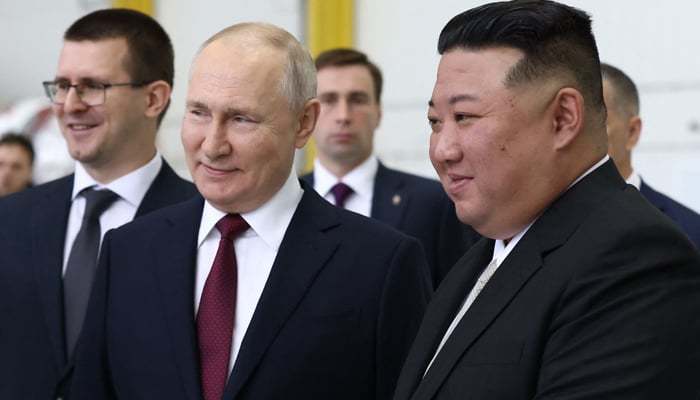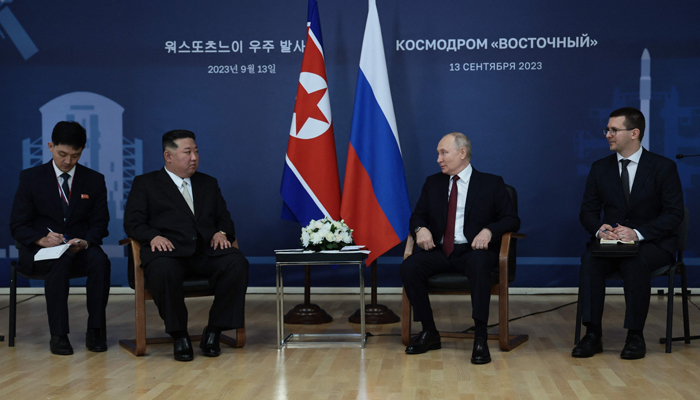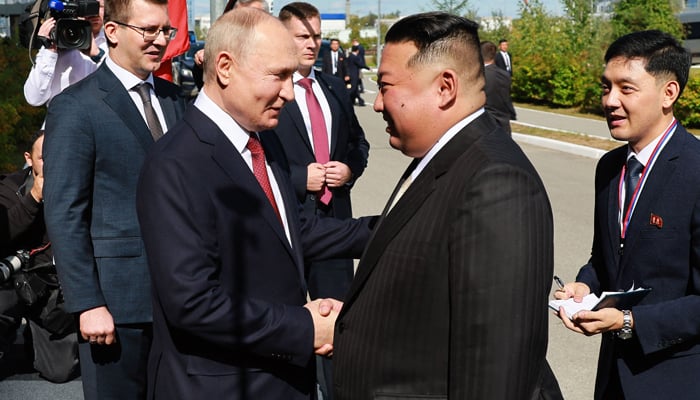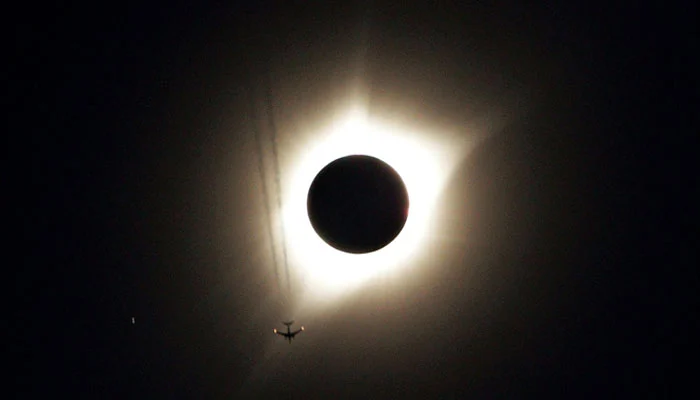North Korean media reported Thursday that President Vladimir Putin has accepted an invitation to visit Pyongyang extended by leader Kim Jong Un during his visit to Russia after four years, as regional tensions are on the rise.
According to the report, the Russian President was extended an invitation at the end of the bilateral meeting Wednesday in which “Kim Jong Un courteously invited Putin to visit the DPRK [Democratic People’s Republic of Korea] at a convenient time.”
“Putin accepted the invitation with pleasure and reaffirmed his will to invariably carry forward the history and tradition of the Russia-DPRK friendship.”
Kim told Putin Wednesday he was sure Russia would win a “great victory” over its enemies, as Ukraine’s Western allies warned of a possible Russian arms agreement with North Korea.

Russia was heavily criticised and sanctioned by the West after it started its special military operation against Ukraine last year. Moscow is now looking to strengthen alliances with other leaders ostracised by democratic countries.
Putin praised the “strengthening of cooperation and friendship between our countries”, while hosting Kim at a Far East spaceport, and told reporters he saw “possibilities” for military cooperation with North Korea.
He had earlier said Moscow could help Pyongyang build satellites.
In Washington, State Department spokesman Matthew Miller had described any cooperation as “quite troubling and would potentially be in violation of multiple UN Security Council resolutions.”

US officials and experts have said Russia is interested in buying North Korean ammunition to use in Ukraine.
While Kim was in Russia, Pyongyang fired two ballistic missiles Wednesday, the South Korean military said, the latest in a string of sanctions-busting tests.
The missiles were launched from near the North Korean capital of Pyongyang, and flew about 650 km (404 miles), said South Korea’s Joint Chiefs of Staff, which condemned the launch as a violation of UN Security Council resolutions.
Japan’s Chief Cabinet Secretary Hirokazu Matsuno told reporters that Japan had lodged a protest against North Korea through diplomatic channels in Beijing.
Both missiles fell in the sea outside Japan’s exclusive economic zone (EEZ), he added.




